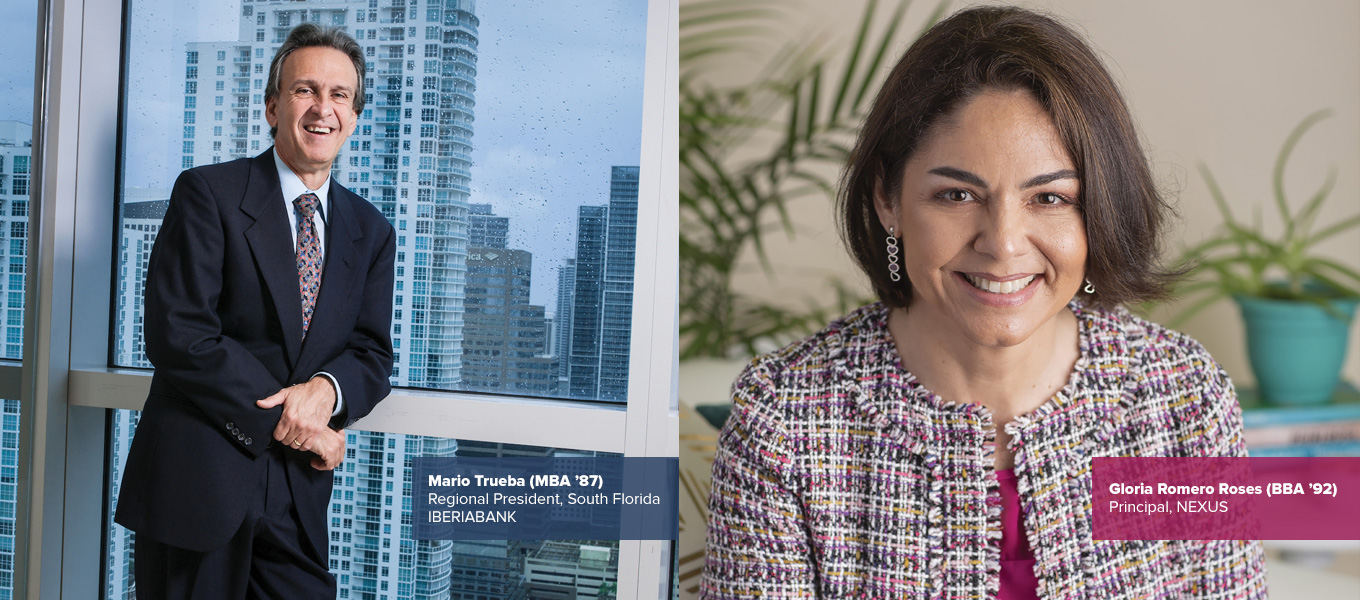
As COVID-19 began to ravage the world economy and obliterate jobs, the panicked pleas for financial assistance from FIU students poured into FIU Business. In one heart-wrenching story after another, students told administrators what happens when you lose your job and have no safety net.
They talked about being on the verge of eviction with nowhere to turn. They described anxiety attacks, and they despaired about disabled family members they struggled to help. They confessed their worries about where they would find their next meal. They wondered aloud how, without money for tuition or even basic necessities, they could avoid dropping out of school just short of the finish line.
FIU Business students have been hit particularly hard. Many of them support themselves by working in the hospitality and retail industries. In the first week of the shutdown alone, 27 of the 45 students in one FIU Business class lost their jobs. As the pandemic moved on, not only was federal student assistance, provided through the CARES Act passed in March, quickly exhausted, it also left out fully online and international students.
Recognizing that the ability of its students to graduate was in real danger, FIU Business resolved to expand the mission of the Dean's Destination Fund, originally created to assist students who needed a little extra financial help to graduate in four years. The goal was simple: get money into the hands of students so they could graduate instead of being forced to drop out of school.
The college reached out to FIU Business alumni, other college supporters and the wider business community to pitch in during this hour of need. FIU Business also redirected $25,000 from its general operating budget to support the fund. As a result, FIU Business students received well over $100,000 in emergency help, ranging from grants of $500 to $2,000 each, through the fall.
Mario Trueba (MBA '87) and his wife Susana, both active FIU alumni, were among those who sprang into action after learning about the fund. With countless lives so quickly upended, they knew immediately that they wanted to contribute.
"COVID-19 has whacked many plans of people across the world, including students," said Trueba, Regional President, South Florida, IBERIABANK and a member of the Dean's Council. "You have folks struggling to make ends meet and struggling to decide whether they can continue on with their undergraduate education."
The Truebas saw their participation in the fund as an easy choice, given the circumstances. "This is nothing too commendable," he said. "It helps deserving students. We are just trying to help folks attend a place that really helped both of us."
Gloria Romero Roses (BBA '92) also donated to the Dean's Destination Fund, motivated to help by her own experience trying to make ends meet as an undergraduate FIU student.
"I know firsthand the challenges that many first generation students encounter as they journey to scale the ladder of success. When I heard there is very specific programming in place to help them, I felt it was my duty."
Gloria Romero Roses (BBA '92) Principal, NEXUS
"I remember working my way through college and, frankly, living paycheck to paycheck," said Romero Roses, a real estate investor. "If my car broke down or if I had a bad cold and needed a prescription or had to see a doctor and pay out of pocket, all those things set me back and potentially derailed my tuition payment or buying books for the semester. I know firsthand the challenges that many first-generation students encounter as they journey to scale the ladder of success. When I heard there is very specific programming in place to help them, I felt it was my duty."
COVID-19, she said, makes it all the more challenging for students to pull themselves up by the bootstraps and solve their problems. "We shouldn't penalize them for factors beyond their control as a result of a worldwide pandemic," she said. "We should look beyond the rhetoric of personal responsibility and government overreach, and we should just focus on what many of us have lived firsthand. These students are coming from disadvantaged backgrounds and working really hard to achieve the American dream."